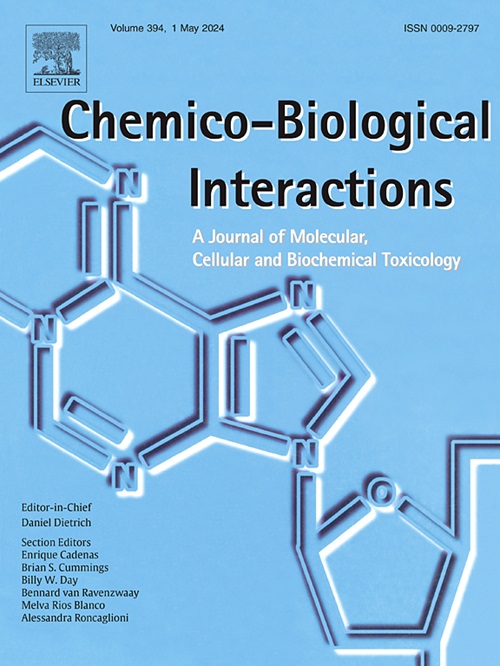增强心脏安全性:环丙沙星脂质体减轻蒽环类药物引起的心脏毒性而不影响抗癌效果。
IF 4.7
2区 医学
Q1 BIOCHEMISTRY & MOLECULAR BIOLOGY
引用次数: 0
摘要
蒽环类药物,如阿霉素和表柔比星(EPI),是治疗实体肿瘤和血液系统恶性肿瘤不可或缺的药物,但与心脏毒性相关,可能导致心力衰竭。潜在的机制涉及活性氧(ROS)的产生、铁代谢的改变和拓扑异构酶2β (Top2β)的抑制,导致线粒体功能障碍和细胞死亡。包括环丙沙星(CPX)在内的氟喹诺酮类药物通过抑制拓扑异构酶II和诱导细胞凋亡来增强蒽环类药物的疗效,因此是一种很有前景的联合治疗方法。本研究探讨了环境pH值对蒽环类药物心脏毒性和心肌蓄积的影响,以及CPX与表阿霉素合用时的心脏保护作用和协同作用。研究结果表明,只有两性离子形式的CPX,无论是游离的还是包封在脂质体中,都具有显著的心脏保护作用,而不会影响EPI的抗癌活性。值得注意的是,CPX脂质体和EPI的联合完全减弱了EPI的心脏毒性。这些结果表明,在使用EPI之前开始使用CPX脂质体治疗可以优化心脏保护,同时保持对癌症的治疗效果。本文章由计算机程序翻译,如有差异,请以英文原文为准。

Enhancing cardiac safety: Liposomal ciprofloxacin mitigates anthracycline-induced cardiotoxicity without compromising anticancer efficacy
Anthracyclines, such as doxorubicin and epirubicin (EPI), are integral in the treatment of solid tumors and hematological malignancies but are associated with cardiotoxicity, potentially leading to heart failure. The underlying mechanisms involve the generation of reactive oxygen species (ROS), alterations in iron metabolism, and the inhibition of topoisomerase 2β (Top2β), resulting in mitochondrial dysfunction and cell death. Fluoroquinolones, including ciprofloxacin (CPX), enhance the efficacy of anthracyclines by inhibiting topoisomerase II and inducing apoptosis, thereby indicating a promising combination therapy. This study investigated the impact of environmental pH on the cardiotoxicity and myocardial accumulation of anthracyclines, as well as the cardioprotective and synergistic potential of CPX when co-administered with epirubicin. The findings revealed that only the zwitterionic form of CPX, either free or encapsulated in liposomes, offers significant cardioprotection without compromising the anticancer activity of EPI. Remarkably, the combination of liposomal CPX and EPI completely attenuates EPI's cardiotoxicity. These results suggest that initiating treatment with liposomal CPX prior to EPI administration may optimize cardioprotection while maintaining therapeutic efficacy against cancer.
求助全文
通过发布文献求助,成功后即可免费获取论文全文。
去求助
来源期刊
CiteScore
7.70
自引率
3.90%
发文量
410
审稿时长
36 days
期刊介绍:
Chemico-Biological Interactions publishes research reports and review articles that examine the molecular, cellular, and/or biochemical basis of toxicologically relevant outcomes. Special emphasis is placed on toxicological mechanisms associated with interactions between chemicals and biological systems. Outcomes may include all traditional endpoints caused by synthetic or naturally occurring chemicals, both in vivo and in vitro. Endpoints of interest include, but are not limited to carcinogenesis, mutagenesis, respiratory toxicology, neurotoxicology, reproductive and developmental toxicology, and immunotoxicology.

 求助内容:
求助内容: 应助结果提醒方式:
应助结果提醒方式:


